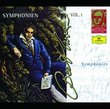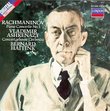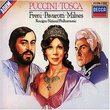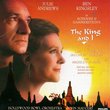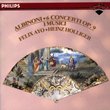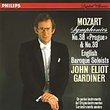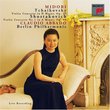| All Artists: Verdi, Nilsson, Corelli, Mehta Title: Verdi: Aida Members Wishing: 0 Total Copies: 0 Label: Capitol Release Date: 1/12/1993 Genre: Classical Style: Opera & Classical Vocal Number of Discs: 2 SwapaCD Credits: 2 UPC: 077776322926 |
Search - Verdi, Nilsson, Corelli :: Verdi: Aida
 | Verdi, Nilsson, Corelli Verdi: Aida Genre: Classical
|
CD DetailsSimilarly Requested CDs |
CD ReviewsCorelli and Nilsson barge down the Nile (in triumph) L. E. Cantrell | Vancouver, British Columbia Canada | 02/17/2007 (5 out of 5 stars) "SOURCE: EMI studio recording made during June, July and August 1967 at the Opera House in Rome. Producer: Ronald Kinloch Anderson. SOUND: Good mid-1960s analogue stereo satisfactorily remastered into digital form. CAST: Aida, an Ethiopian slave to Amneris - Birgit Nilsson (soprano); Radames, a captain of the royal guard destined for higher things - Franco Corelli (tenor); Amneris, the daughter of Pharaoh - Grace Bumbry (mezzo-soprano); Amonasro, the warrior King of Ethiopia - Mario Sereni (baritone); Ramfis, the High Priest - Bonaldo Giaiotti (bass); King of Egypt - Ferruccio Mazzoli (bass); a messenger - Piero De Palma (tenor); a priestess - Mirella Fiorentini (soprano). CONDUCTOR: Zubin Mehta with the Rome Opera House Orchestra and Chorus. DOCUMENTATION: Libretto in Italian and English. Short essay on the history and background of the opera (fairly interesting, for once.) Summary of the plot tied into the track listings. Track list that provides timings, identifies singers and page references in the libretto. FORMAT: Disk 1 - Acts I and II, 26 tracks, 78:31. Disk 2 - Acts III and IV, 18 tracks, 62:10. COMMENTARY: "Aida," like "Il trovatore," but unlike "La Traviata" or "Die Meistersinger," has been fortunate in generating many first-rate recorded performances which can recommended without qualm or caveat. This is one of them. However, opera fans, by their very nature, delight in endless debate about the relative merits of this conductor or that, of one Radames over another, about the importance of bite in the voice of Amonasro A compared to the mellifluence of Amonasro B, and most of all disputing the merits of the grand lady portraying the slave Aida. Ante up with a Callas and somebody will raise you with a Tebaldi (or two.) Toss out a Price or an Arroyo and get trumped with a Milanov. And on and on. I do not propose to get into pointless and unseemly debate about who is the greatest. (Besides, as anyone with any sense knows, it's Milanov.) I prefer a simpler measure of whether an "Aida" can be recommended without reservation. If I had seen this performance in an opera house, would someone have had forcibly to restrain me from standing on my chair to yell bravos and whistle? If so, it can be recommended with a light heart. This "Aida" can be recommended with the lightest of hearts. I think the greatest strength of this recording is to be found in two men. Franco Corelli simply shines in this outing. For once, and for all I know, for the only time in his career, he displays strength and delicacy in proper proportions. Take that galumphing old warhorse aria, "Celeste Aida." He strikes the final B-flat with the anticipated forte blast but most unexpectedly he drops down to piano, at once transforming the aria from the usual out-of-place warcry to the intended reverie. In the tomb scene at the end of the opera, he is simply faultless; there is no other way to describe him. The other man is Bonaldo Giaiotti who makes Ramfis into a true star part. Ferruccio Mazzoli, too, is impressive as the King of Egypt, but his role is too brief to have full effect. Mario Sereni's Amonasro is well-conceived and effectively offered, but by 1967 Sereni no longer had the sheer strength of the others--if he ever did. As Aida, Birgit Nilsson did not have Milanov's sheer beauty of tone or Callas' insightful intensity, or Tebaldi's inborn italianata--but she was NILSSON and that was plenty impressive all by itself! In an opera house, she'd have blown me right out of my seat. Amneris is not a role that I might spontaneously associate with Grace Bumbry. In a perfect universe I would prefer Barbieri, Simionato or the young Stignani, but in this mundane world, Bumbry will do just fine for me, thank you very much. As an opera, "Aida" can be approached as an intimate drama, as a large-scale spectacle or as something in-between. Mehta, I think, felt the pull of the spectacle, as did Solti in his outing with Price and Vickers. There is an largeness about the conceptions of the two conductors that is easily distinguishable from the intrinsically intimate approach taken by Serafin with Callas. Many people admire Solti for bringing out all the opera's orchestral detail in a thoroughly symphonic reading of the score. I, on the other hand, think Solti's "Aida" a dreadful example of bang, boom and bombast, as well as a deplorable waste of the fine performance of John Vickers. I'll happily take Mehta on this one. If your ideal "Aida" is a spectacle, Mehta is the man for you. (Regarding Mehta and this recording, that good, grey English magazine, The Gramophone, has made an interesting U-turn. In 1990, the reliable and perceptive Alan Blythe said, "The most laming aspect of the performance is Mehta's stodgy and wayward conducting, which is only partially compensated for by the idiomatic performances of his Roman forces." In 1999, the same critic said, "They don't make them like this any more--in every sense. In the 1950s and 1960s EMI made a series of what have become truly classics with Rome Opera forces that have Verdi in their blood.... The young Mehta conducts with a deal of dramatic verve." Oh, yes.) Five stars reflected on the silent-flowing waters of the Nile." Theatre needed! Armindo | Greece | 11/05/2005 (4 out of 5 stars) "This Aida needs to escape the studio and be heard in a theatre. There are many well sung recordings of Aida but when you think which ones would cope with a big orchestra in an open air theatre you're only left with a handful of Aidas. One could argue why this is necessary but I feel this is the way to truly understand and admire Verdi's masterpiece. Nilsson and Corelli certainly have the gifts to honour Aida's grand style. She sings with authority and rock solid top notes. There isn't much warmth there and the lower notes don't impress as much as the top ones but the sheer size of the voice makes you imagine its effect in the theatre. Similarly, Corelli is a volcanic Radames who also shows he can size his voice down if needed. If only he got rid of the lisp. Bumbry sings with passion and an exotic voice. If you like the Verrett/Gorr/Price club, you'll enjoy her singing. I find it lacks Italian bite, as does Nilsson's Italian as well by the way. Sereni offers more dramatically than vocally and the remaining roles are luxuriously cast. The sound varies. At times it's close and captures nuances and elsewhere it's spacious to enable the blasting of top notes. Finally Mehta's orchestra is great and altogether makes this an attractive Aida recording. For sheer volume, this is your Aida. If you want more warmth, go for Tebaldi who is was at least as powerful as Nilsson, or Caballe for even more delicacy but less power. Millo and if you don't mind her exotic voice, L. Price are also strongly recommended. " THEY CAN'T PERFORM IT LIKE THIS ANYMORE! L. Mitnick | Chicago, Illinois United States | 02/24/2008 (5 out of 5 stars) "Aida is an opera that really isn't done all that much anymore. Oh sure, there are performances at the Met, Covent Garden, and La Scala, but performances of it are much less frequent today than they used to be. The reason is very simple: the dramatic sopranos and heavier-voiced tenors who used to make "Aida" a frequent repertoire are now almost extinct. Up until about twenty years ago, when the likes of Zinka Milanov, Renata Tebaldi, Maria Callas, Montserrat Caballe, Leontyne Price, Mario del Monaco, Richard Tucker, Placido Domingo, and Luciano Pavarotti roamed through the operatic sphere, casting this opera was no problem. Today, however, it's not as easy, and those singers who undertake the soprano and tenor roles are usually somewhat compromised by the demands of the score. Birgit Nilsson was simply the greatest Wagnerian soprano of the second part of the twentieth century, and she also did some forays into Italian opera as well (Puccini's Turandot was her specialty, and she frequently appeared in Tosca). Verdi's Aida was in important role as well for Nilsson. She opened the 1963 Metropolitan Opera season in the role, and she sang it in major opera houses. Her singing has a distinct Nordic quality to it that some may mistake for a lack of Italian warmth. The voice itself is massive and soaring, and the vocal demands of the role are child's play for her. Equally vocally endowed was the fabulous Franco Corelli, probably the only tenor whose voice could stand up besides Nilsson without sounding as though it were being buried. Rhadames was a great role for him, and his liquid-lava voice is truly a dramatic tenor.
The same vocal sparks this pair generated in "Turandot" are generated here, albeit on a somewhat smaller scale. Both are outstanding, though again, Nilsson is somewhat less idiomatic to the Italian style. Grace Bumbry is an exciting Amneris and is very dramatic. She was thirty years old at the time of this recording and she sounds it. She was a great mezzo (who also sang soprano roles as well) and Amneris is probably the greatest mezzo role ever written. Mario Sereni is an acceptable Amonasro and makes the most of what he had (one cannot blame him for not being in the class with Nilsson, Corelli, and Bumbry!). Zubin Mehta, an extremely forceful conductor, makes the most of the spectacular orchestration, and gives his great singers plenty of room to give the most they have, which in the case of this particular cast, is a whole lot indeed. You won't hear an "Aida" sung like this today." |

 Track Listings (26) - Disc #1
Track Listings (26) - Disc #1